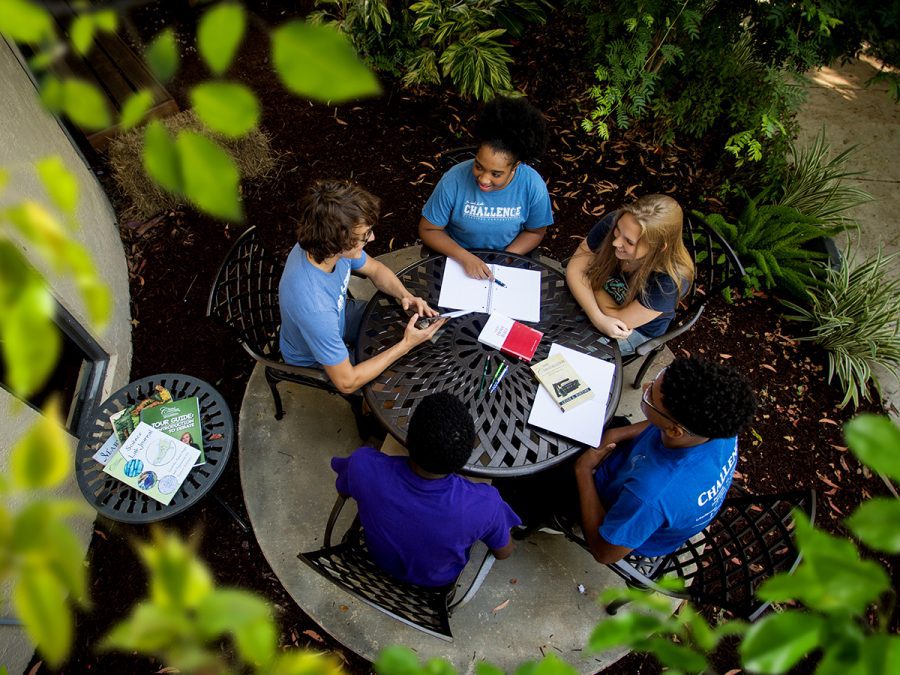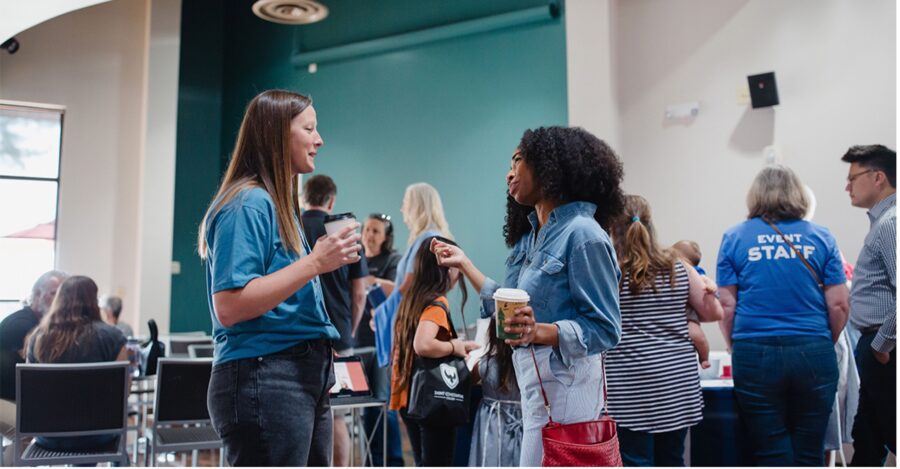Classical Conversations® Challenge III is the fifth level in our middle to high school level Challenge program. If you and your student are considering homeschooling with Challenge III, here’s some helpful information to get you started.
An Overview of Classical Conversations Challenge III
This overview of Challenge III will cover the program’s respective student ages and grade level, theme, strands, and reading list.
Challenge III Student Ages and Grade Levels
The Challenge III program is open to homeschool students ages 16 and up. For comparison, Challenge III is typically equivalent to junior year in high school, or 11th grade.
The Challenge III Theme
The theme of Challenge III is all choices bring consequences. Throughout this year, students begin to understand the impact that both good and bad decisions can have by studying various subjects. For example, students analyze historical and literary figures’ choices and read R. C. Sproul’s The Consequences of Ideas. By examining the impact of choices across different subjects, Challenge III students are encouraged to notice the consequences of actions in their own lives.
The Challenge III Strands
As with the other levels of Challenge, Challenge III incorporates learning six strands (i.e., “skills”) through studying subjects both at home and in community with peers and a Licensed Director. These Challenge strands are logic, grammar, research, exposition, debate, and reasoning.
Logic
In the Challenge III logic strand, students are pushed to work attentively and diligently as they solve complex math problems. This year’s curriculum builds on algebra and geometry concepts covered in Challenge II and introduces more advanced pre-calculus concepts, including trigonometry. The skills learned in the Challenge III logic strand — including how to communicate complex technical ideas clearly — will prepare students well for college-level applied math courses in calculus, physics, and engineering, should they choose to pursue a math-intensive degree.
Grammar
In the Challenge III grammar strand, students focus more on Latin readings and translations over simple grammar exercises. Picking up where they left off in Challenge II, Challenge III students continue to learn about the life of Julius Caesar and translate several of his writings. They also translate Cicero’s orations from Henle: Third Year Latin. In community, students not only discuss with their peers the best ways to translate words, phrases, and sentences but also consider the qualities of a good work of rhetoric. For many, it’s in Challenge III where students who have studied Latin from Foundations up really begin to see the fruits of their labors by being able to, for example, translate Latin in real-time without having to jot down notes.
Research
In the research strand, Challenge III students learn about God’s creation at the chemical and atomic levels by studying chemistry. In community, they continue to practice the scientific method and ask good questions by carefully performing and clearly recording scientific experiments. Students also learn to interpret the periodic table of elements, notice the relationships between atoms as they form and break chemical bonds, and practice math in chemical equations. The study of chemistry reinforces this year’s theme that actions have consequences, even at a molecular level.
Exposition
It is often said that the homes of the educated include two books — the Bible and Shakespeare. In the Challenge III exposition strand, students read several of Shakespeare’s plays, which provide dramatic contexts for them to begin to understand that choices have consequences. In community, students discuss the characters’ wise and unwise actions and what resulted from those actions. In addition, students practice their own poetry, write persuasive essays, and memorize and present thirty lines from each Shakespeare play they read. Some Challenge III communities even host a Poetry Café!
Debate
In debate, Challenge III students study American history. As students read portions of the comprehensive A Patriot’s History of the United States, participate in weekly discussions with their peers, write historical research papers, and deliver speeches in community, they are encouraged to grasp a deeper understanding of the choices that historical figures made to shape our nation today.
Reasoning
In the Challenge III research strand, students learn music theory and philosophy. As they do, students are encouraged to notice how concepts of logical thinking apply to both subjects.
In the first semester, they observe the structure of music, learn music vocabulary, and listen to and analyze various compositions to observe order in music. In the second semester, students think critically about ideas from history’s greatest philosophers. Together, they discuss writings and ideas from Plato to Freud and the impact these figures have had on education, society, religion, and culture. In doing so, they are encouraged to discern truth from falsehood.
The Challenge III Book List
The Challenge III reading list includes resources to help students recognize that all actions have consequences. To view the Challenge III book list, visit our bookstore.
How to Enroll Your Student in Challenge III
Throughout this year, as they study various subjects like pre-calculus, Latin, chemistry, Shakespeare, American history, music theory, and philosophy, Challenge III students ideally begin to see that all choices have consequences. Because students this age typically face tough decisions like where to attend college or what career to pursue, the Challenge III program arrives at the perfect time to give students the tools to think about their own choices in this season of life.
To learn more about or to enroll your student in the Classical Conversations Challenge III program, click here.




